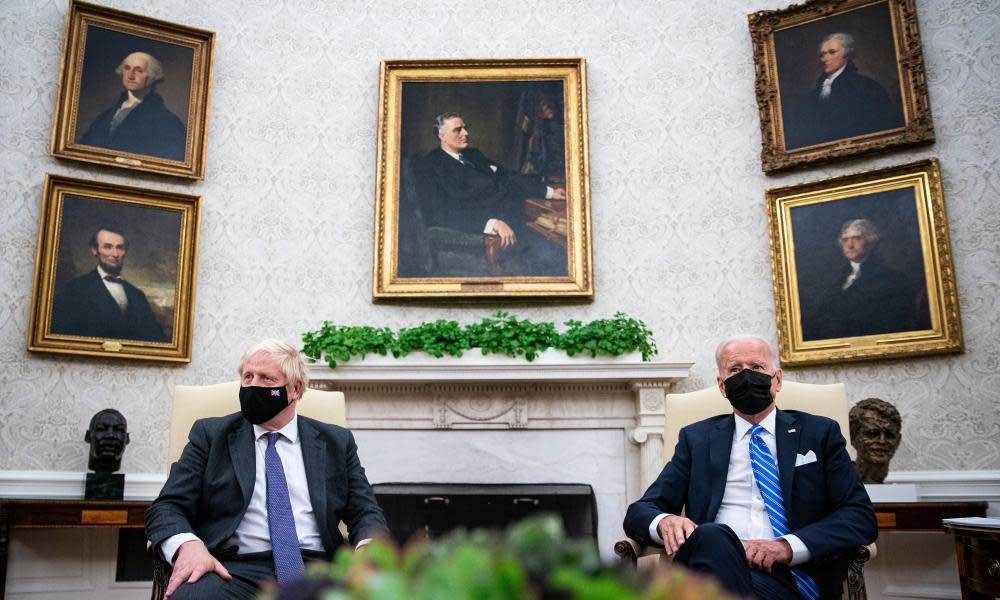Can Boris Johnson expect UK-US trade deal to go ahead?

Why does Boris Johnson want a US trade deal?
Three reasons. First, Britain exports more to the US than to any other country. When added together, the countries of the European Union count for more, but almost 15% of the UK’s goods exports went to the US last year. The US is also the No 1 country for UK services exports.
Second, the pandemic seriously affected trade flows between the two countries and a trade deal is seen as one way of boosting growth. Exports of goods to the US fell from £61bn in 2019 to £46bn in 2020, while US exports to the UK dropped from £46bn to £37bn, according to figures from the Office for National Statistics.
Finally, the ability to strike new trade deals was a key part of the leave case for Brexit, and the prime minister wants to show he can deliver in the biggest market of all.
So why have the talks stalled?
Negotiations between the two countries formally began in May 2020 and there were five rounds of talks while Donald Trump was in the White House. But since Joe Biden became president in January, there have been no subsequent meetings between chief negotiators. That’s partly to do with the time it has taken to get the new administration up and running and partly because Biden doesn’t rate a US-UK deal among his top priorities. The fact that Johnson was so close to Trump hasn’t made it easier for the UK to get the Americans back to the table.
How long will it take to get a deal?
While there was some hope of talks being wrapped up by the end of the Brexit transition period at the end of last year, this was always unrealistic. Trade deals are complex and it can take years before both sides are content with the outcome. It would be considered rapid progress if an agreement could be struck by the date of the next presidential election in late 2024.
Why is that?
Related: No US trade deal in sight for Johnson: Politics Weekly podcast
What the UK wants out of a trade deal is relatively uncontroversial: easier access for financial services, lower tariffs on luxury British exports such as Scotch whisky and cashmere for example. But the US is demanding concessions in return, and what Washington wants – access for American firms to UK healthcare and a market for US agricultural products – is politically extremely difficult for Johnson. The UK has insisted that the NHS is “not for sale” and that there will be no watering down of food standards, and this presents a big barrier to progress in the talks.
Are there alternatives to a US-UK deal?
Yes. There are a number of possible options under consideration, including a mini trade deal involving tariff cuts on certain goods and deals that cover specific sectors such as digital. The UK government is exploring the possibility of striking deals with individual US states, such as California, and is pursuing membership of the Comprehensive and Progressive Agreement for Trans-Pacific Partnership (CPTPP). CPTPP is a free trade agreement between 11 countries around the Pacific Rim: Australia, Brunei Darussalam, Canada, Chile, Japan, Malaysia, Mexico, New Zealand, Peru, Singapore and Vietnam. The US is not a member of the CPTPP but there is the possibility of it becoming one, the UK believes.
What about the UK joining the US, Mexico, Canada trade pact?
This is a real red herring. There is no prospect of Britain joining the USMCA, which emerged out of the North American Free Trade Agreement (Nafta). The accord is limited to its three members and has no provisions for accession by another country.

 Yahoo News
Yahoo News 
